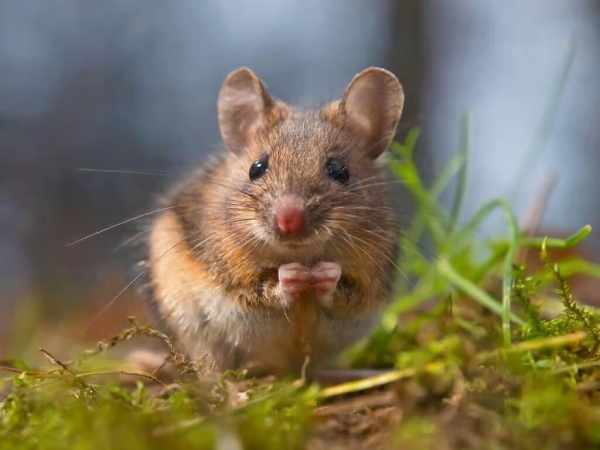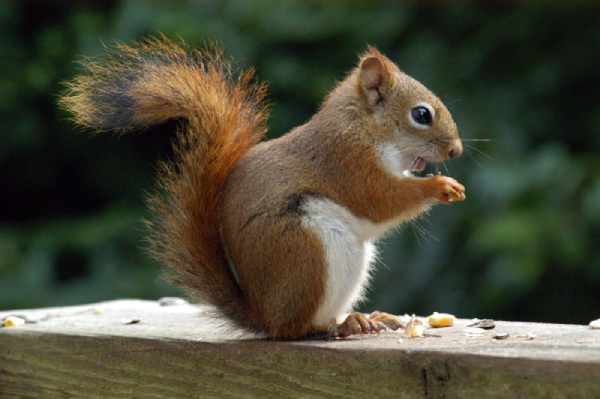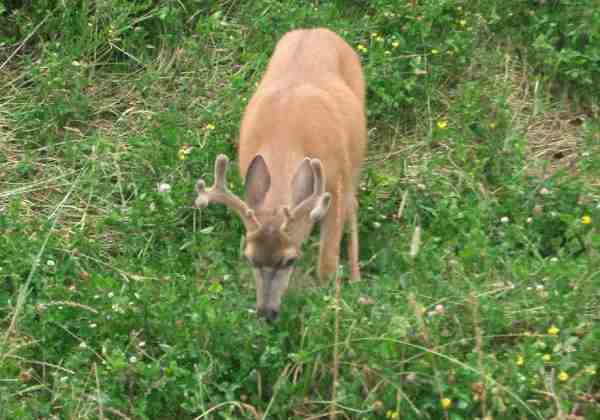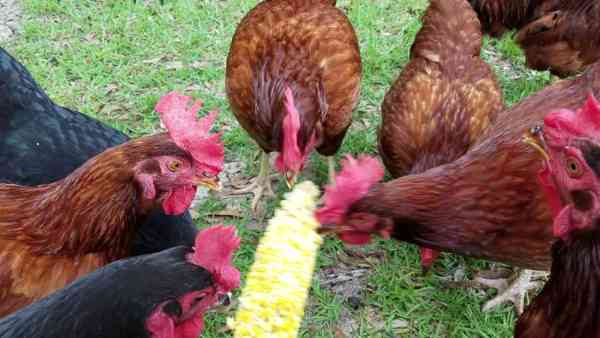While many people associate pumpkins with Halloween and pumpkin pie, animals are also big fans of this delicious fruit! From squirrels to deer, pumpkins are a popular snack for many creatures. What’s the lure? It could be the sweet pulp or the protein-rich seeds, however, whatever the reason, pumpkins are like a magnet for many animals. Curious to know which animals specifically enjoy this fall treat? Read on to find out!
Table of Contents
List of Animals That Eat Pumpkins
Rabbits

Scientific Name: Oryctolagus cuniculus
Type of Animal: Mammal
Diet: Herbivore
These adorable little creatures belong to a species that take pleasure in consuming pumpkins. Whether they are wild rabbits or domesticated pets, they will undoubtedly relish the delectable flesh of this fruit.
If you find yourself pondering whether or not to offer pumpkins to these animals and in what quantity, fret not, for here is the answer! A typical rabbit can readily savour a pumpkin, but caution must be exercised regarding the specific parts you provide.
The tender and sweet pulp of the fruit, along with its leaves, can be safely consumed by rabbits. However, great care must be taken with regard to the guts and seeds, as they pose challenges to digestion and may lead to health issues for the bunnies.
Additionally, it is crucial to monitor the amount of pumpkin consumed by rabbits, as excessive intake of this sugary fruit can be detrimental to their well-being.
When serving pumpkin to rabbits, it is essential to ensure that it is not cooked. Introducing processed pumpkin products may result in severe digestive problems for these animals. This is why rabbits prefer their food raw, and if you choose to cook the fruit, it’s best to use it in a pumpkin pie.
Foxes

Scientific Name: Vulpes
Type of Animal: Mammal
Diet: Omnivore
Foxes, being omnivorous creatures with a preference for meat, do not shy away from consuming fruits and vegetables either. This includes indulging in the occasional treat of pumpkins.
Regarding their pumpkin-eating habits, foxes primarily focus on the sweet, fleshy part of the fruit. They typically avoid consuming the rind, seeds, guts, or leaves.
It is not uncommon for foxes to scavenge cracked pumpkins they come across or for people to discard leftover Halloween pumpkins, which can become a part of their diet.
If you happen to have a pet fox or frequently encounter foxes in your backyard, and you wish to provide them with pumpkins, it is crucial to keep the portion size moderate. Feeding them a cup or a small bowl’s worth should suffice, as large quantities can lead to digestive issues.
Moreover, it is advisable to clean the pumpkin beforehand, removing any inedible parts that the fox would obviously ignore. In certain cases, you may even choose to lightly boil the pumpkin without adding any additional ingredients.
Mice

Scientific Name: Mus musculus
Type of Animal: Mammal
Diet: Omnivore
Mice possess an opportunistic appetite, willing to consume anything that appears appetizing, and pumpkins are no exception to their munching habits.
When it comes to consuming pumpkins, these rodents tend to favour the tender interior parts. They seldom indulge in the rind and instead concentrate on the soft flesh and pumpkin seeds, especially if they come across cracked ones.
Feeding your pet rat or mouse raw pumpkin flesh and seeds is generally acceptable. However, the situation differs when it comes to wild mice.
In the wild, if mice discover an unguarded pumpkin garden, they are likely to nibble on some of the fruits. This can pose a common issue for farmers and gardeners, as these tiny creatures will bite into multiple pumpkins to obtain what they desire, leaving behind ruined fruits. Consequently, many individuals take precautions against them, such as positioning a cat in the field.
The best advice for your pet mice is to provide pumpkins in moderate quantities. As for the wild ones, if they become a nuisance in your garden, you may consider options such as owls, repellents, or cats to deter them.
Squirrels

Scientific Name: Sciuridae
Type of Animal: Mammal
Diet: Omnivore
Squirrels, much like mice and other rodents, have the ability to consume pumpkins. Therefore, if you happen to have a fully ripened pumpkin in your garden that has split open, rest assured that a passing squirrel will discover it and take a nibble.
If you’re curious about their preferred part of the pumpkin, the answer might surprise you! Squirrels have no aversion to any part of the pumpkin, as none of it is toxic to them. They will happily munch on nearly every component, although they may have their own preferences.
For instance, if you were to discard the pumpkin’s skin or rind in your backyard, it wouldn’t be surprising to spot a squirrel enjoying a snack by gnawing on it. Squirrels also partake in the brain region where the seeds reside, relish the sweet flesh, nibble on the stem, leaves, and ribs, and even consume the vines of the fruit. These small creatures will happily feast on the entire pumpkin!
While squirrels adore and can consume pumpkins on a daily basis, it is crucial to note that it’s not advisable to feed them the fruit frequently. Similar to the aforementioned animals, an excessive intake of vitamins or food is never beneficial for them.
Additionally, if squirrels are solely provided with pumpkins, they may neglect seeking out other sources of food, leading to a deficiency in essential nutrients and making their lives more challenging.
Deer

Scientific Name: Cervidae
Type of Animal: Mammal
Diet: Herbivore
Deer, much like the other animals mentioned, have a great affinity for pumpkins. They genuinely adore this fruit and will readily feast upon it, showing no hesitation in cracking open a pumpkin and consuming the entire fruit. They have no qualms about devouring all parts of the pumpkin, including the leaves and guts.
Interestingly, the favourite part of the fruit for deer is precisely the guts. They relish it, as it is packed with vitamins and beneficial for their health. Additionally, other components of the pumpkin, such as the flowers, are also highly appealing to them.
If you find yourself with an abundance of pumpkins or leftovers to spare, offering them to deer would be greatly appreciated. These animals will be more than happy to have them as a food source.
If you have decided to feed pumpkins to these delightful creatures, there are a few considerations to bear in mind. Firstly, it is important to crack open the nutritious fruit and split it apart. While cutting the fruit is sufficient, leaving the stem and some attached leaves can be beneficial. This allows the deer to utilize them to smash the fruit on the ground and further assist themselves in consuming it.
Nevertheless, it is crucial to avoid overfeeding them, as it is not favourable for their overall health, similar to the previous animals discussed.
Chickens

Scientific Name: Gallus gallus domesticus
Type of Animal: Bird
Diet: Omnivore
Chickens, being highly versatile eaters, are known to consume almost anything provided to them, including certain food leftovers. Therefore, offering them fresh and delightful pumpkins will undoubtedly bring them joy.
These birds have the ability to eat every part of the fruit, exhibiting an impressive digestive capacity. They can digest both the pumpkin leaves and skin, relish the seeds, and particularly enjoy pecking at the soft, pulpy flesh of the fruit.
Feeding your chickens this fantastic fruit offers various benefits, as it provides them with essential vitamins and valuable nutrients such as calcium and protein (found in the seeds).
If you have decided to introduce pumpkin into your chickens’ diet, the most effective approach is to assist them by cutting the flesh of the fruit. Dicing the pumpkin makes it easier for the birds to consume, reducing any potential conflicts over food and allowing them to relish their meal.
Here’s a helpful tip: For chickens that require additional vitamins and supplements, you can conveniently cut the pumpkin and incorporate it into their diet, providing them with a nourishing source of nutrition.
Final Words
Pumpkins are not only a favourite food for humans, but they are also a preferred snack for many wild and domestic animals. Whether it’s chickens, rabbits, squirrels, deer, or foxes, these creatures can all benefit from the highly nutritious profile of pumpkins. Loaded with protein, calcium, and various vitamins, pumpkins can contribute to the health and well-being of these lovely animals.
However, care must be taken when feeding them to avoid overfeeding and creating unfavourable conditions for the animals’ health. Stick to recommended amounts to ensure that your furry and feathered friends thrive on their favourite fall treat.
Reference:
- https://woodgreen.org.uk/advice/pets-and-pumpkins
- https://texasfarmbureau.org/are-pumpkins-safe-for-livestock-to-eat
- https://www.canr.msu.edu/news/trick-or-treat-feeding-pumpkins-to-horses

Rahul M Suresh
Visiting the Zoo can be an exciting and educational experience for all involved. As a guide, I have the privilege of helping students and visitors alike to appreciate these animals in their natural habitat as well as introducing them to the various aspects of zoo life. I provide detailed information about the individual animals and their habitats, giving visitors an opportunity to understand each one more fully and appreciate them in a more intimate way.









